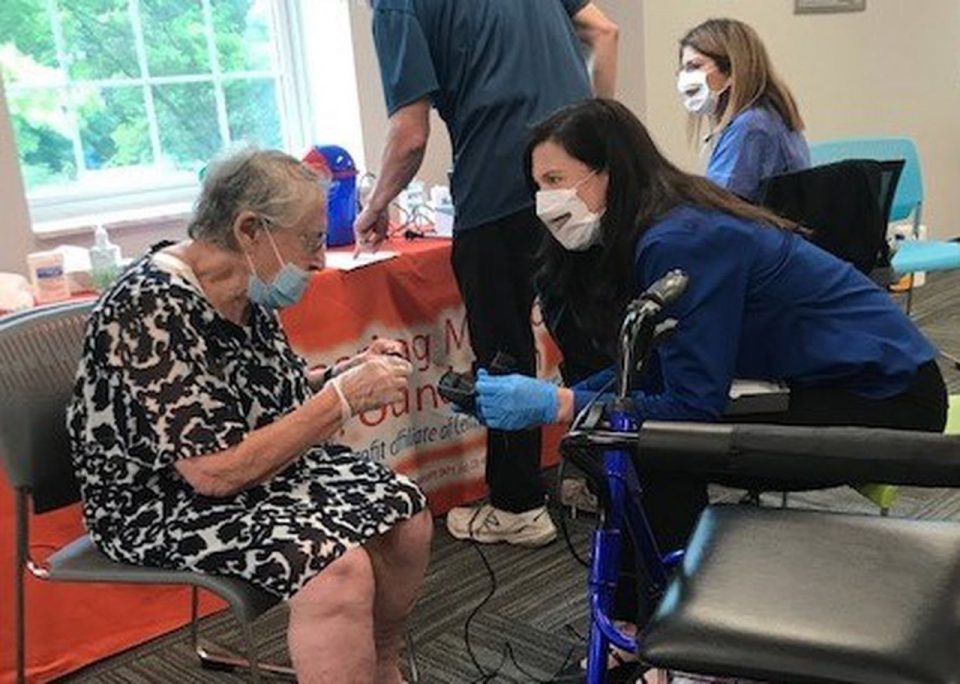CLEVELAND, Ohio — Hardship, for Holocaust survivors, was once a matter of life or death.
Today, the consequences aren’t as dire, but for many survivors some difficulties remain.
An estimated 70 percent of Holocaust survivors live in poverty in Northeast Ohio. Nationally, a third of survivors live at or below the poverty level; one quarter live alone.
Sometimes, living alone and potentially vulnerable is by choice, said Erika Gold, of Beachwood. She said that among her fellow Holocaust survivors, “some people are afraid to go into nursing home. They want to stay home because they remember, they don’t want to be regimented again.”
Here, they’re also old, ranging from 76 to 100 years, coping with all the debilitating consequences of age.

Holocaust survivor Abram Horn meets with Dr. Danielle Hoenig, Centers for Hearing Care, as part of a hearing aid program offered through the Jewish Family Service Association of Cleveland.
On the plus side, the resiliency of Holocaust survivors has been a valuable skill in rebuilding their lives, according to Anne Rosenberg, vice president of marketing and development for the Jewish Family Service Association of Cleveland.
The association provides a variety of support programs, including:
– Home care in the form of personal health care aides, nurses, cleaners and homemakers.
– Case management to assist survivors in obtaining services for needs not covered by insurance.
– Emergency assistance for medical needs and dental care, medications, housing necessities and food subsidies including home-delivered meals.
– Winter clothing for those who are at-risk due to health issues.
– A hearing aid program for survivors offered through the KAVOD SHEF (Survivors of the Holocaust Emergency Fund) initiative and Hearing Missions Foundation.
The effort is funded through the Jewish Federations of North America, Medicaid and the Conference on Jewish Material Claims Against Germany, Inc., which handles reparations for Holocaust survivors.
The Jewish Material Claims eligibility guidelines were recently expanded to include people who were fetuses at the time their mothers were held in ghettos, concentration camps, or fled from the advancing Wermacht/German Nazi army.
Income eligibility also has been expanded, and Sax encouraged survivors to contact the Jewish Family Service Association at (216) 292-3999 to determine if they are eligible for compensation and benefits.
Rosenberg noted that despite the coronavirus pandemic, the association continues to offer one-on-one support to area Holocaust survivors, including weekly visits.

Holocaust survivor Tamara Levina, left, talks with Dr. Sheryl Figliano, Centers for Hearing Care, as part of a hearing aid program offered through the Jewish Family Service Association of Cleveland.


